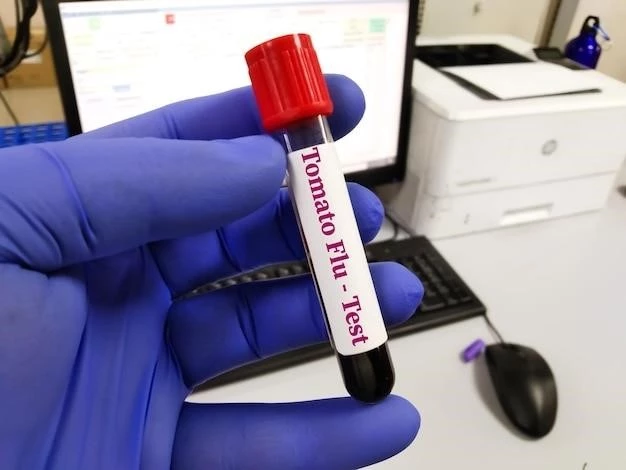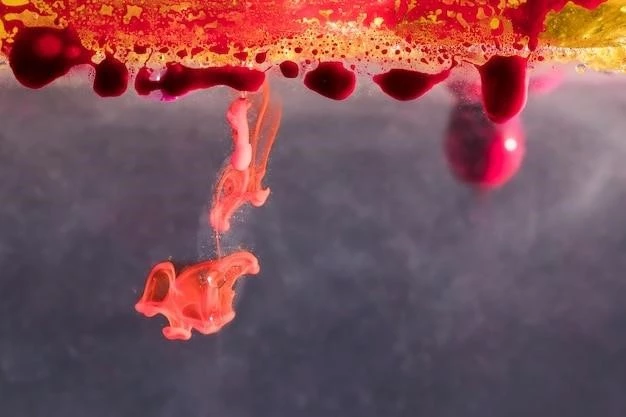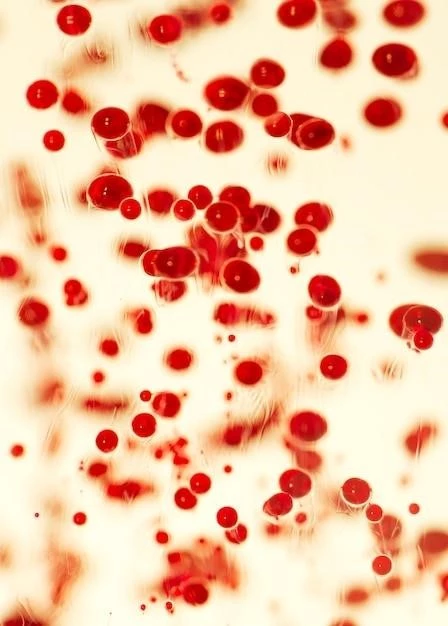Recurrent myoglobinuria is characterized by recurrent attacks of rhabdomyolysis associated with muscle pain and weakness and followed by excretion of myoglobin in the urine․ Renal failure may occasionally occur․ Onset is usually in early childhood under the age of 5 years․
Recurrent myoglobinuria presents as recurrent attacks of rhabdomyolysis characterized by muscle pain, weakness, and myoglobin excretion in the urine․ It is a potentially fatal condition that often manifests in early childhood, typically before the age of 5 years․
Etiology and Genetic Factors
The most common cause of recurrent myoglobinuria is a lipid metabolism disorder, such as carnitine palmitoyltransferase II deficiency․
Mitochondrial Gene Mutations
Recurrent myoglobinuria has been observed with mutations in mitochondrial genes such as MTCO3, MTCO1, and MTCYB․ These mutations can lead to exertional myoglobinuria and alcohol intolerance, among other symptoms․
LPIN1 Gene Mutations
Recent studies have found that mutations in the LPIN1 gene on chromosome 2p21 can lead to recurrent episodes of myoglobinuria․ These mutations may be inherited in a recessive or dominant manner and can result in severe symptoms in affected individuals․
Definition and Characteristics
Recurrent myoglobinuria is characterized by recurrent attacks of rhabdomyolysis associated with muscle pain and weakness, followed by excretion of myoglobin in the urine․ Renal failure may occasionally occur․ Onset is usually in early childhood under the age of 5 years․
Symptoms and Signs
Patients with recurrent myoglobinuria experience symptoms such as muscle pain, weakness, and myoglobin excretion in the urine․ Renal failure may occasionally occur as well․ The onset of these symptoms typically manifests in early childhood, usually before the age of 5 years․
Diagnostic Challenges
Distinguishing recurrent myoglobinuria from other forms of muscle breakdown disorders can be challenging due to overlapping symptoms like muscle pain and weakness․ Prompt diagnosis is crucial for appropriate management of the condition․
Management and Treatment Approaches
Optimal management of recurrent myoglobinuria includes prompt diagnosis, identification of the underlying cause, and targeted therapeutic interventions to prevent further episodes and potential complications․
Prompt Diagnosis Importance
Timely diagnosis of recurrent myoglobinuria is crucial to implement appropriate management strategies and prevent potential complications associated with the condition․ Early identification allows for targeted interventions to improve patient outcomes and quality of life․
Therapeutic Interventions
Treatment strategies for recurrent myoglobinuria may involve targeted interventions focusing on managing symptoms, preventing further muscle breakdown, and minimizing the risk of renal complications․ Therapeutic approaches aim to address the underlying cause of the condition and enhance patient well-being․

Prognosis and Complications
Recurrent myoglobinuria carries a potential risk of renal failure and mortality rates of up to 35%٫ highlighting the importance of early diagnosis and appropriate management to mitigate these complications․
Mortality Rates
Recurrent myoglobinuria is associated with mortality rates of up to 35%, emphasizing the serious nature of the condition and the need for timely intervention and management strategies to improve patient outcomes․
Renal Failure Risks
Patients with recurrent myoglobinuria face potential risks of renal failure, emphasizing the importance of timely diagnosis and management to prevent severe complications involving kidney function․
Epidemiology and Incidence
Recurrent myoglobinuria typically presents in early childhood, with an onset before the age of 5 years․ The condition is considered potentially fatal, with mortality rates reaching up to 35%․
Prevalence in Different Populations
Recurrent myoglobinuria has been reported predominantly in childhood cases, with a significant mortality rate of up to 35%․ This condition appears to be underdiagnosed and may have undiagnosed etiologies, highlighting the need for increased awareness and recognition of the disorder․
Environmental Triggers
Recurring episodes of myoglobinuria, especially exercise-induced types, may be triggered by factors such as extreme physical exertion, fasting, or viral illnesses․ Viral myositis epidemics have also been associated with temporary increases in myoglobinuria incidence, emphasizing the influence of environmental triggers on the condition․
Research and Genetic Studies
Research on recurrent myoglobinuria has focused on mitochondrial gene mutations such as MTCO3٫ MTCO1٫ and MTCYB٫ as well as LPIN1 gene mutations as causative factors․ Genetic studies aim to further understand the genetic basis of this condition to improve diagnostics and develop targeted therapies․
LPIN1 Gene Research
Recent studies have identified mutations in the LPIN1 gene as a causative factor for recurrent myoglobinuria․ These genetic variations, which can be inherited in a recessive or dominant manner, play a critical role in the development of this condition․
Advances in Understanding Genetic Recurrent Myoglobinuria
Advances in genetic research have elucidated the role of mutations in mitochondrial genes (MTCO3, MTCO1, and MTCYB) and the LPIN1 gene as underlying factors in recurrent myoglobinuria․ Understanding these genetic mechanisms is essential for improved diagnostics and personalized treatment approaches․

Future Directions and Potential Treatments
Future directions in recurrent myoglobinuria research are focused on advancing understanding of mitochondrial gene mutations like MTCO3, MTCO1, and MTCYB, as well as LPIN1 gene mutations․ Potential treatments aim to target specific genetic causes to improve management strategies and develop personalized therapeutic interventions․
Emerging Therapies
Emerging therapies for recurrent myoglobinuria are centered around targeting specific genetic mutations, such as those in mitochondrial genes like MTCO3, MTCO1, and MTCYB, as well as the LPIN1 gene․ These novel treatments aim to address the root genetic causes underlying the condition to improve patient outcomes․
Genetic Counseling and Family Planning Considerations
Genetic counseling plays a crucial role in understanding the hereditary nature of recurrent myoglobinuria, especially concerning mutations in genes like MTCO3, MTCO1, MTCYB, and LPIN1․ Family planning considerations involve assessing the risk of passing on these genetic variants to future generations and implementing appropriate strategies to manage the condition within familial contexts․
